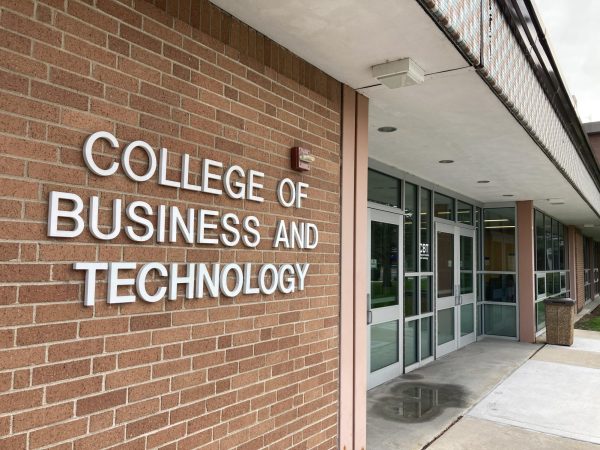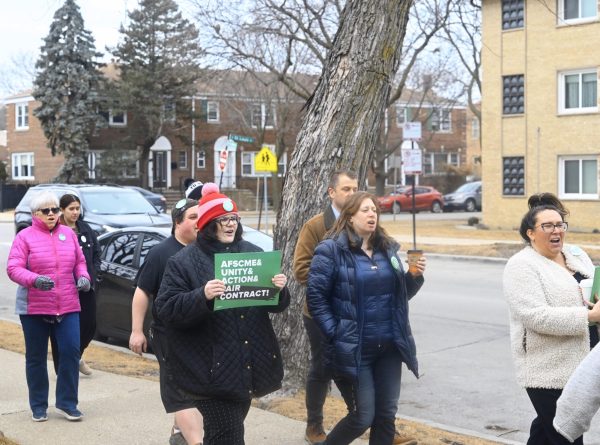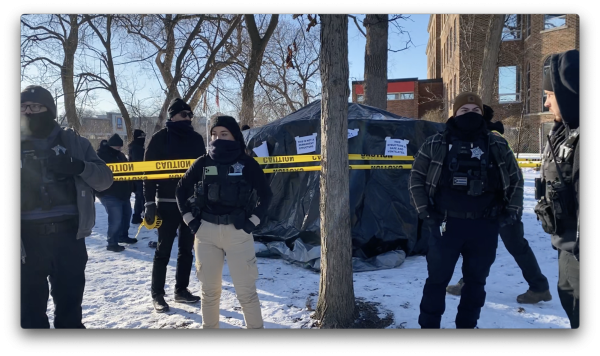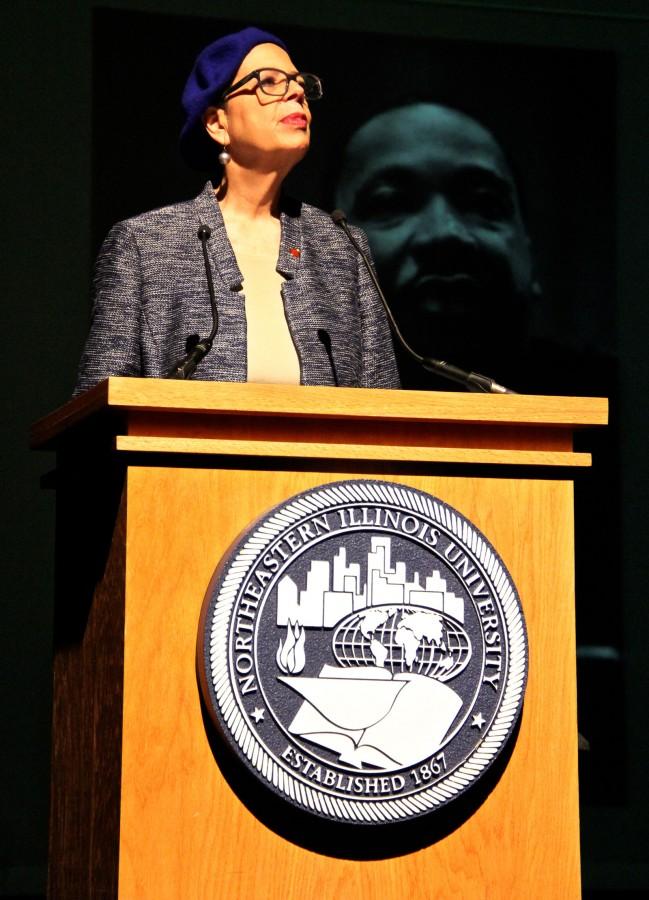“What Does Social Justice Mean to You?”
Celebrating the Life of Dr. Martin Luther King, Jr. with Karen Lewis
More News
Karen Lewis, president of the Chicago Teacher’s Union and NEIU alumna, spoke about the vision of Dr. Martin Luther King, Jr. and the meaning of social justice.
Karen Lewis, president of the Chicago Teachers Union (CTU), was the keynote speaker at the annual celebration of the life and legacy of Dr. Martin Luther King, Jr. on Jan. 21. The event was sponsored by The Angelina Pedroso Center for Diversity and Intercultural Affairs.
The auditorium of NEIU’s main campus was about three-fourths full for the presentation, which also featured a dance performance by NEIU student Tevin Rice. Rice danced to King’s “I Have a Dream” speech, underscored by instrumental music.
Lewis then presented her keynote address.
“It’s always good to come home to Northeastern,” Lewis said.
She joked that she’s thankful the King holiday is celebrated in the month of his birth, as if the speech were scheduled for a later date, it may be happening outside a closed school if a state budget does not pass soon.
“Since [Gov. Bruce Rauner’s] unable to balance a state budget and put a number of public institutions in harm of closing their doors, Northeastern may be fine for now, but brothers and sisters I implore you to join in solidarity with the faculty, staff and students at Chicago State to help them save their institution,” Lewis said. “If one of us in unsafe, all of us are unsafe.”
Lewis stated that Gov. Rauner’s agenda is simply unacceptable.
“The governor’s turn-around agenda is not good for Illinois,” Lewis said. “It’s not good for working families. It’s not good for singles parents, students, children, the aged or the disabled. It’s only good for billionaires and adventure capitalists…If you haven’t felt the impact of his misguided policies, don’t worry. You’ll have your turn.”
She went on to call the governor a “sociopath” for cutting funding for autism on World Autism Day.
“There’s a reason a single lyric from an iconic civil rights song has become the mantra of 21st century youth who are in the streets all over the country fighting police violence, ‘Which Side are You On,’” Lewis questioned. “I’m on freedom’s side. So, it’s quite fitting that I’m asked to talk to you this afternoon about my favorite topic — social justice.”
Lewis made note that the attack against teachers unions is happening all over the world and has been for decades. She further noted the fight for quality education is impacted by “poverty, neighborhood violence, poor nutrition, unemployment, classism and racism.”
Lewis encouraged the audience to be reflective and ask themselves, “What is social justice to me?” In reflecting on the life of King, Lewis challenged the common narrative of his life and instead reminded those in attendance that he was a mere human.
“Dr. King felt that materialism was another sort of evil and one that corrupts the human spirit, much like absolute power,” Lewis said. “Rev. King was a radical. He wasn’t narcissistic. If you listen to the sanitized version of his life, you would think he was born in a manger and he single-handedly fought Jim Crow, obtained voting rights…and went on to take on the issue of Vietnam all by himself. …The real King believed Jesus was a revolutionary and it was because of his Christian faith that he [acted] to destroy white supremacy, racial bigotry, economic and social violence.”
She continued to note there are two main versions of King’s life – one that holds him up as a saint and another that acknowledges him as an organizer and fighter for human rights.
“Dr. King had audacity just like Fannie Lou Hamer, Ella Baker, Rosa Parks,” Lewis said. She continued: “The sanitized King is remembered as being weak and unable to keep up with emerging Black voices. The real King spoke clearly to his fellow freedom fighters. When they said ‘Burn, baby, burn’ Martin Luther King, Jr. said, it must be ‘Build, baby, build,’ ‘Organize, baby, organize.’ Yes, our slogan must be ‘Learn, baby, learn’ so that we can ‘Earn, baby, earn.’”
She noted that King always made a point of acknowledging those who were in the fight with him especially young activists who put themselves on the line for justice. She said that it is up to those who believe in his legacy to understand him as a person, a fallible human, not a god.
“It is important that we demystify his person so that we can thoroughly examine his legacy through the proper historical lens,” Lewis said. “When we deify Dr. King we tell children and emerging activists that the things he accomplished during his lifetime are unattainable and otherworldly. That’s why we have to demystify and tell the truth about him. Dr. King was a mere mortal.”
She believes that in order to continue to live out his legacy today, people must come together, understand his belief for peaceful action and create change.
“What does social justice mean to you?” she questioned. “At some point in your life you will have to ask the question and answer it, ‘Where was I when all of this was going on?’ Safe? Hiding? Or getting down on Facebook? Or did you stand with the oppressed? Did you open your mouth? Did you advocate for your own cause? Did you take up the mantle of social justice? … Anybody can serve. …You only need a heart generated by grace, a soul full of love.”
Your donation will support the student journalists of Northeastern Illinois University's The Independent, either in writers' payment, additional supplies and other items of note. Your contribution will allow us to purchase additional equipment for writers/photographers/illustrators and cover our annual website hosting costs.








